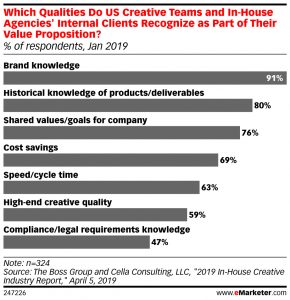All isn’t fair in marketing, especially not if legal compliance has anything to do with it. If you’re aren’t playing by the legal rules, you could stand to lose everything. Here’s how to stay on the right side.
Nothing is worth having if you don’t have to work for it. And with the medical world feeling attacked by emerging health brands, legal compliance is heating up.
The part of your business the most affected?
Marketing.
Using the right words can drive sales. Using the wrong words can lead you to bankruptcy. And 47% of marketers agree.
Choose Authentic Brand Words
With so many regulatory agencies to report to, health brands must ensure that all of their marketing is FDA, FTC, and USDA compliant. Take the risk and cut corners and you’ll be handsomely rewarded with fines.
And when you look to recent lawsuits, it becomes clear, you have to choose your words very wisely.
The Just Mayo & Truly Organic lawsuits teach us one valuable lesson: unsubstantiated claims will cost you. It could cost you millions. Don’t have millions? It will cost you your business.
In the all-natural, wellness craze, it can be tempting to use words like non-GMO, gluten-free, or organic to position your products in front of more consumers. But, in the marketing legal framework, word quality is better than word quantity. You want to use the right words that are true to your brand and your product offering. Words that you can substantiate should regulatory inspectors come knocking. If your product is not 100% organic or certified as an organic product with the USDA then avoid the lure to add it to your marketing campaigns. It could save you millions of dollars in fines and an unrecoverable hit to your brand reputation.
Use Testimonials the Right Way
Social proof is one of the most powerful and compelling brand assets. With 93% of consumers reading online reviews before making a purchase, your testimonials are as good as gold.
But they come with a host of compliance regulations too. Though testimonials can be lightly-edited for grammar, substantially changing them is fraudulent marketing. Likewise, testimonials for health-related products are generally only good for 2 years. So, even your testimonials have an expiration date.
Know Your Product Category
Navigating the marketing compliance landscape is complex. Depending on your product category, regulators will often determine what you can and cannot say.
For example, hearing aids are regulated by the FDA, but personal sound amplification devices (PSAD) are not. Therefore PSADs can never be described as ”hearing aids” in marketing copy unless they want a legal fight with the FDA.
Use the wrong words and you could be facing a steep and expensive hurdle that could have been avoided.
Compliance Marketing doesn’t have to destroy your sales
With all the legal requirements to follow, it can deflate your marketing, if you aren’t creative. But as a seasoned direct response marketer by trade, I know for every one word you can’t use for compliance reasons, there are 5 specific, actionable, benefit-packed, value-driven words you can use. The key is knowing how to legally work around the marketing constraints. That’s why I founded Response Mine Health. And as the only HIPAA and PCI compliant digital marketing company in the country, we’ve become experts at creating winning marketing campaigns even in an extremely compliance tight industry.
As marketers, we choose the words we use. Choose wisely to grow sales. Choose accurately to avoid litigation. Choose only those words that are 100% true to your brand to grow well-earned sales.
Useful References:
Advertising and Marketing Standards
Advertising and Marketing Claims Regulations
Consumer Testimonial Collection and Use

